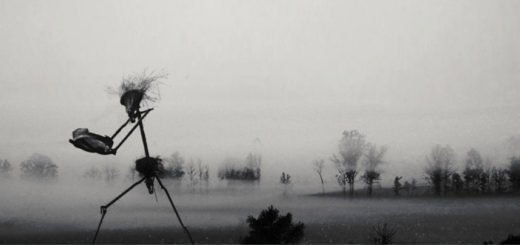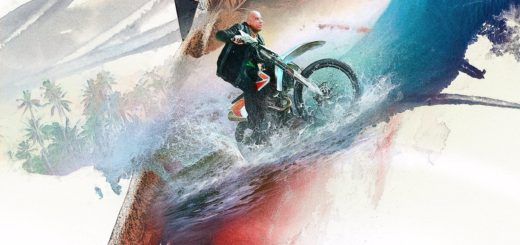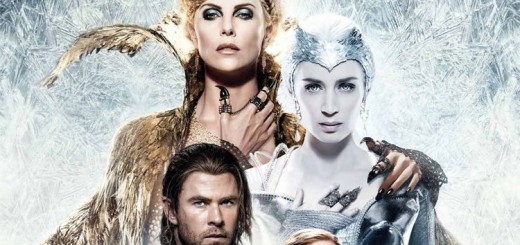KUBO AND THE TWO STRINGS Review
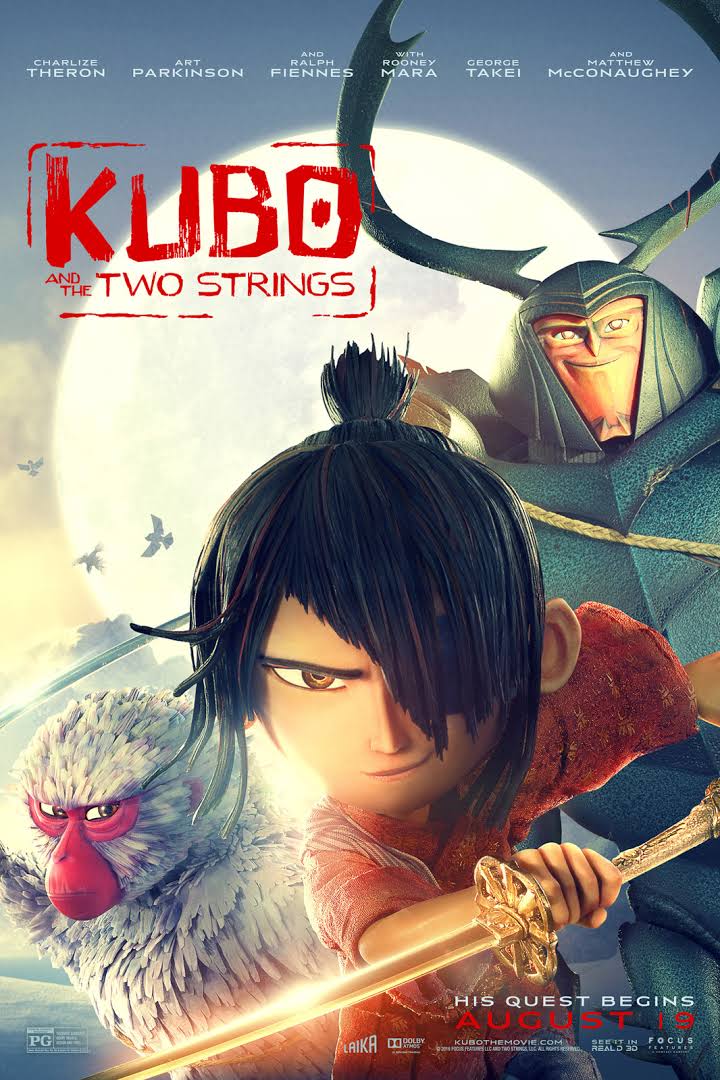
Director: Travis Knight
Genre: Animation
Year: 2016
Flowing with the ease of a traditional fable and the visual splendor of animation house Laika’s production value, KUBO AND THE TWO STRINGS not only leaves its current Pixar competitor FINDING DORY deep in its shadow, but reveals a touching, old-school hero’s journey that is sure to delight across the board. This time, Laika has given us the tale of a young boy named Kubo, whose mother is on the lam after her father and sisters killed her husband. After a desperate battle, young Kubo loses his mother and is sent on the search for a powerful suit of armor, with a sassy monkey and samurai beetle as his two companions. And while Laika’s 2016 offering is certainly a visual landmark with some seriously weighty ideas to boot, it feels like a step back in what has been a track record of transgressive narratives and characters.
The magic of KUBO AND THE TWO STRINGS is the ease at which it commands its space using stop motion animation. No challenge appears too great for Laika anymore. Ocean waves and crackling fires are gorgeously rendered into existence through brilliant practical effects, and even the minutiae of a monkey’s wet palm touching Kubo’s hair is a sight to behold. In fact, its finest moments are within its first 30 minutes, where Laika showcase magnificent ocean storms and a gorgeous village full of countless lively citizens. The attention to detail here is outstanding.
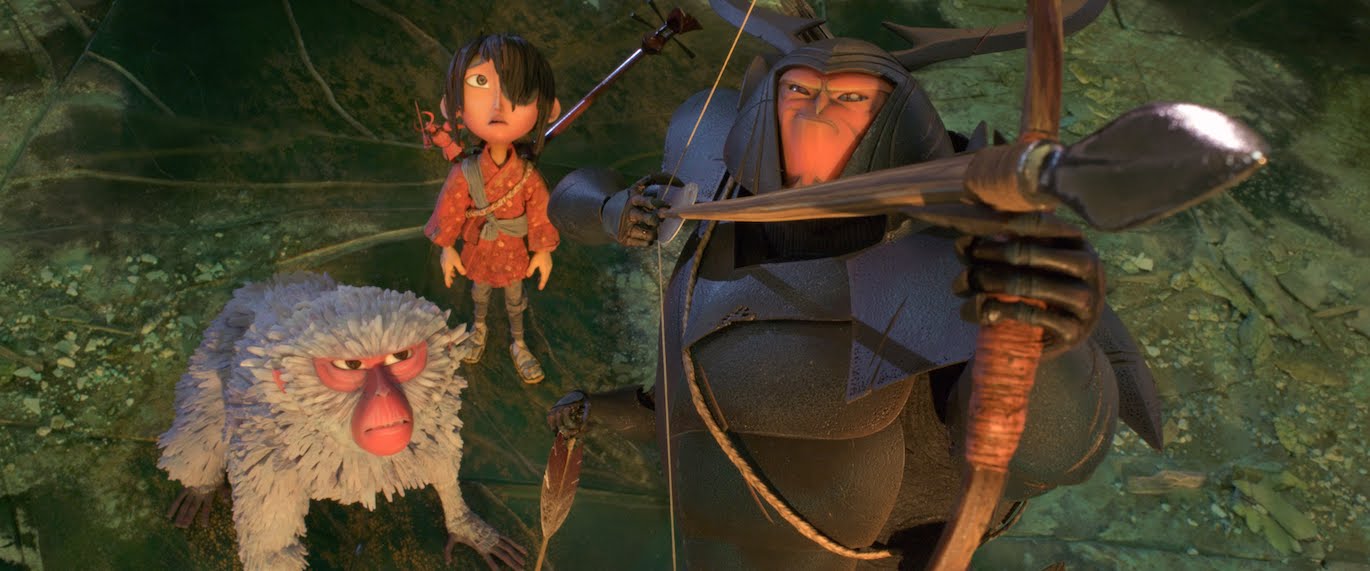
The fetch quest of the summer
But while KUBO AND THE TWO STRINGS is a visual titan, I can’t help shake the feeling that its story feels uninspired despite its metaphoric sophistication. Jumping off the success of CORALINE and PARANORMAN, Laika have established themselves as the go-to animation house ready to tackle themes that were just a little too intimidating for Pixar, both in the realm of horror and character exploration. And while KUBO AND THE TWO STRINGS certainly offers unique characters, its narrative beats (save for its phenomenal finale) can be predicted from a mile away.
Laika’s greatest success is in tone, both frightening and heroic, successfully showing our hero’s growth from village boy to powerful leader. But where the story drops the ball is just how much of a template its structure feels like for an animated film in 2016. After the gorgeous first act, KUBO AND THE TWO STRINGS becomes a classic quest tale, much to its own dismantlement, forcing a checklist journey in which our hero must recover a blade, chest piece, and helmet in various locations. Frankly, it feels too easy for a narrative that otherwise deserves more depth. Laika’s film is dense with metaphors and themes of family, so it frustrates me to see such a profound tale executed with such milquetoast, incremental storytelling.
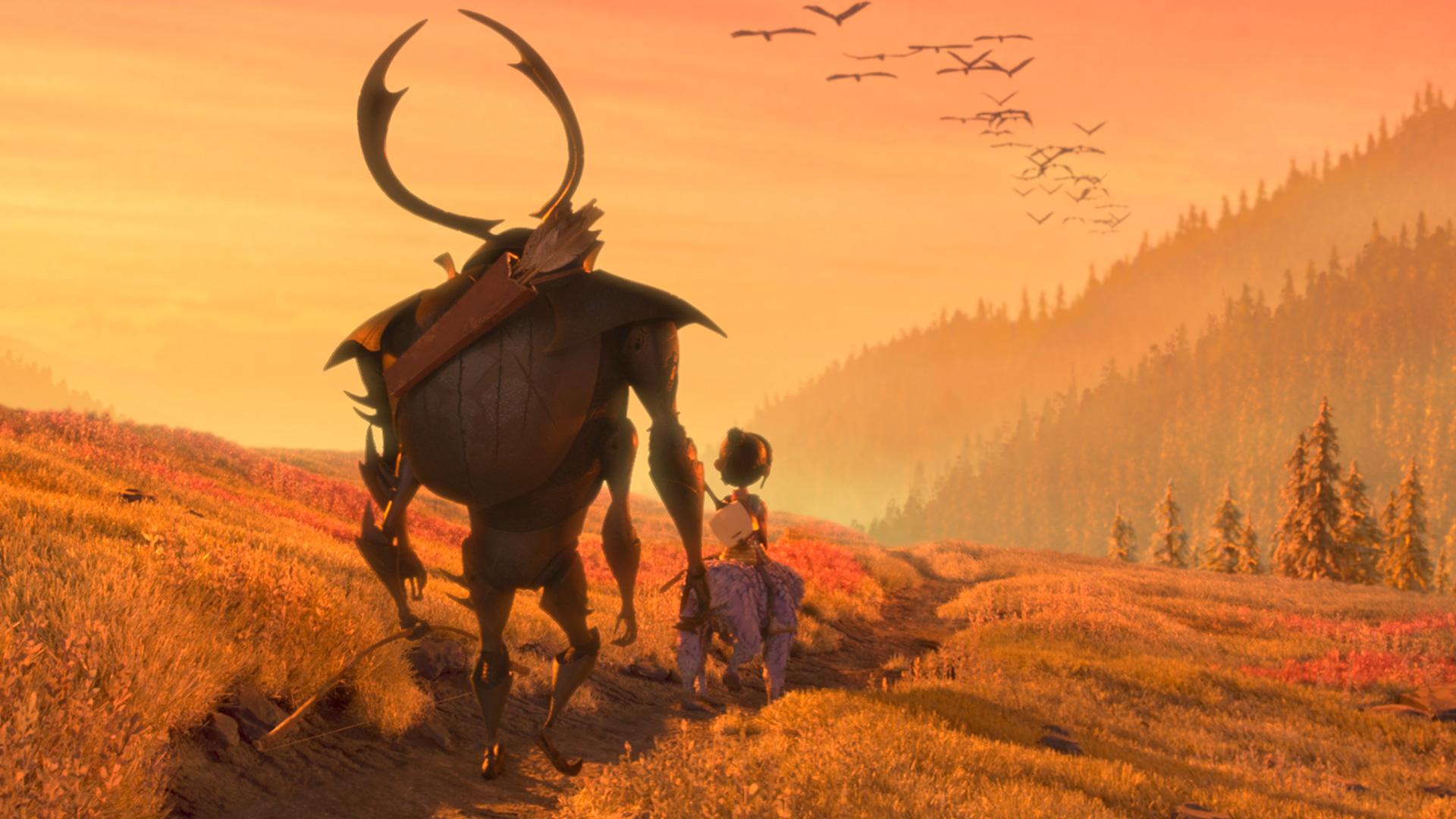
More depth, guys, not more depth of field
The backstory of the Kubo’s mother and father covers an ideological war between a heaven and earth, during which a spirit falls in love with an earthling, betraying her people, and birthing Kubo. This framework functions as a far more interesting plot than the one Laika actually makes viewers follow. As such, it’s difficult for me to really feel swept up in a tale when there’s a far more interesting one buried inside its backdrop. In fact, it’s not that KUBO AND THE TWO STRINGS ever feels like anything short of a good film, it’s just that Laika have a vested interest in building a beautiful universe around their story, and clearly have a better narrative at their disposal than the admittedly more child-friendly one that they’ve decided to tell.
While the character work in KUBO AND THE TWO STRINGS makes for a compelling tale of family, tipping its hat to Kurosawa in the process and making a beautiful statement about the power of storytelling, I still feel that Laika needed a few more runs at the screenplay in order to flesh out their ensemble. Monkey and Beetle’s ability to hold their own in a fight against the evil sisters seems to seesaw only to convenience the narrative. Without giving too much away, Monkey seems quite competent in battle during her first encounter, but when fighting alongside Beetle and Kubo, they lose? Had Laika made it clear that one sister is far more powerful than the other, I could have let this slide, but for all intents and purposes, they are virtually the same person.
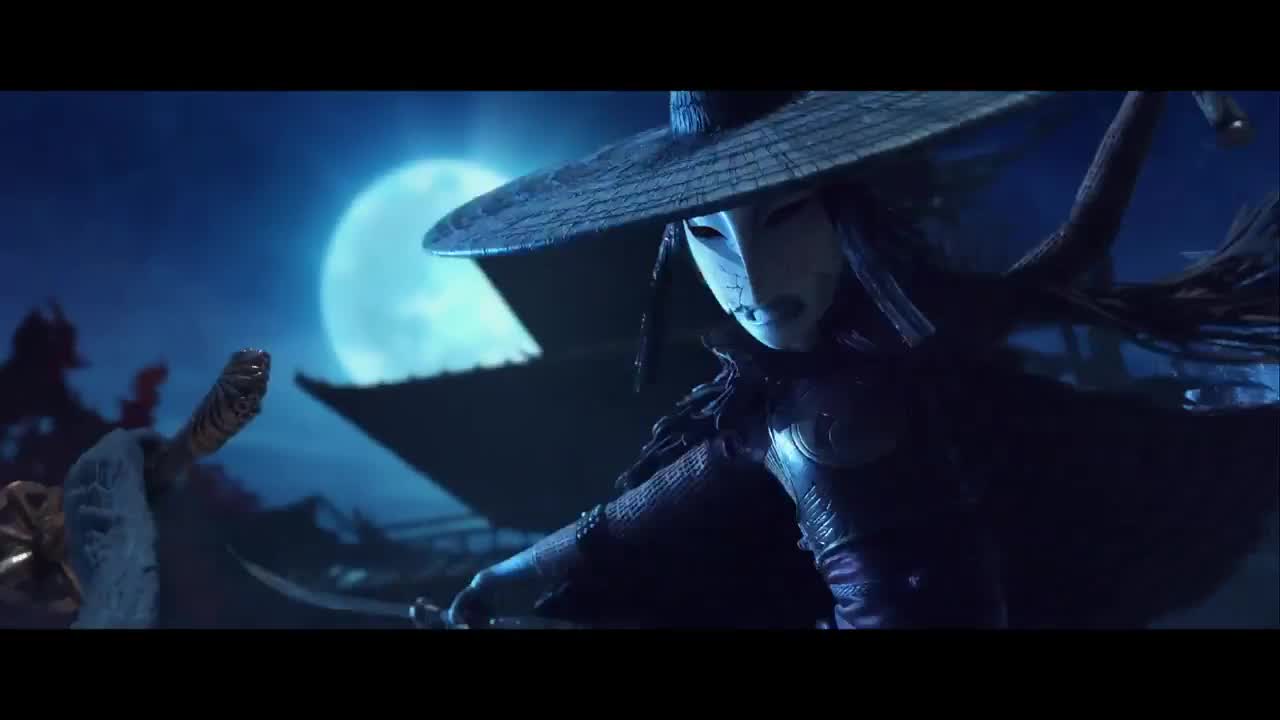
“Just cuz we dress the same doesn’t mean we’re the same person, bub”
The saving grace of much of the film’s narrative missteps is the film’s climax. Beautifully concluding the epic battle with a spiritual message of forgiveness, KUBO AND THE TWO STRINGS feels like a fairytale that kids should see for its good intentions alone. Sadly, I feel like the story would have been more poignant had Kubo’s mother been the protagonist. The emotional attachment to the film’s nemesis is virtually nonexistent for Kubo, thusly his redemption feels like a shoehorned attempt to spout the message, “make love, not war.” Kubo’s mother undergoes a far more powerful journey only to be cut short to best suit Kubo’s arc. And though Laika’s film feels like it’s just a tweak away from being a timeless classic, there is certainly a level of depth here that is often missing in contemporary animation. And for that alone, it’s worth the price of entry.
Verdict: Recommend

